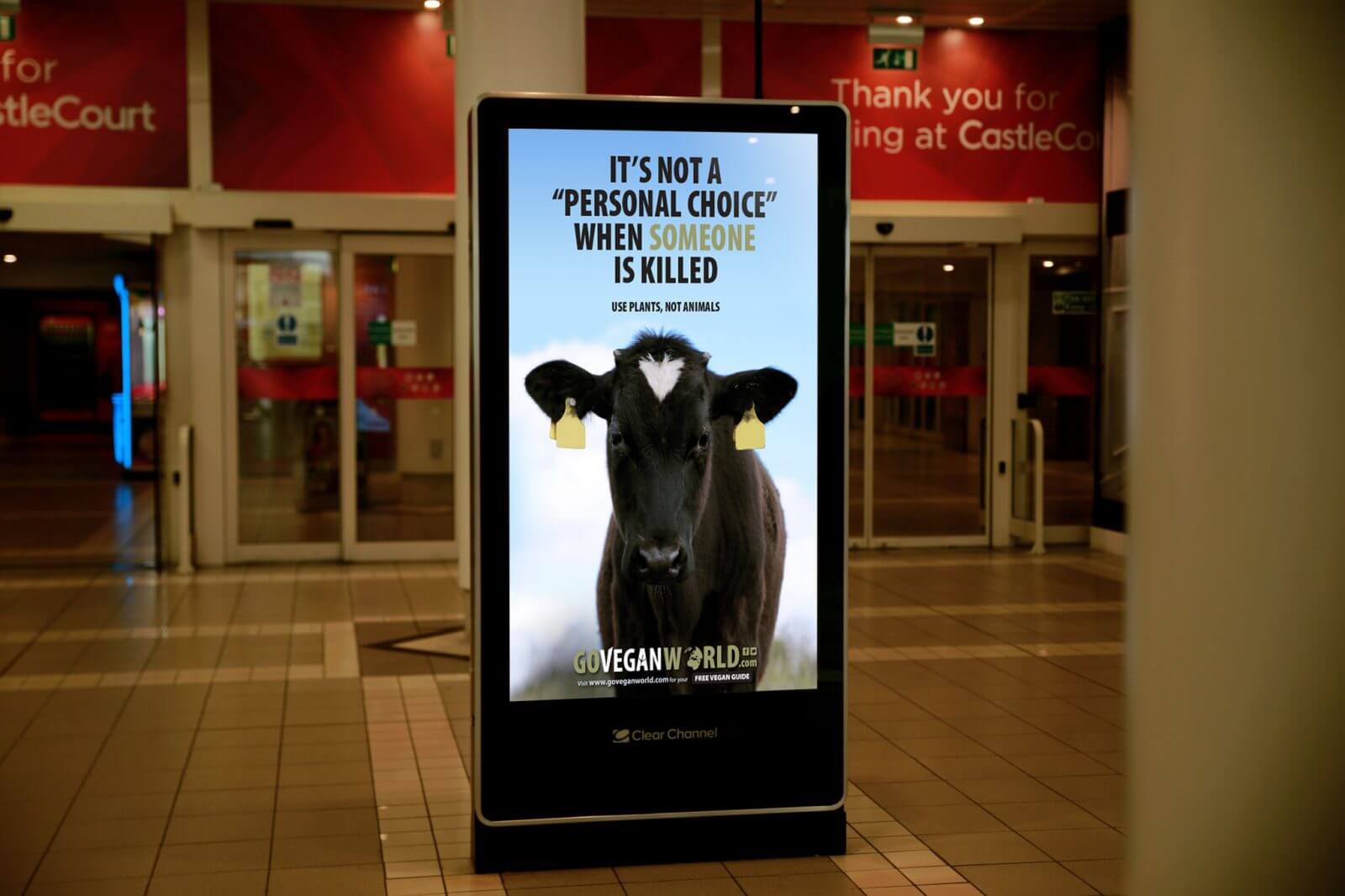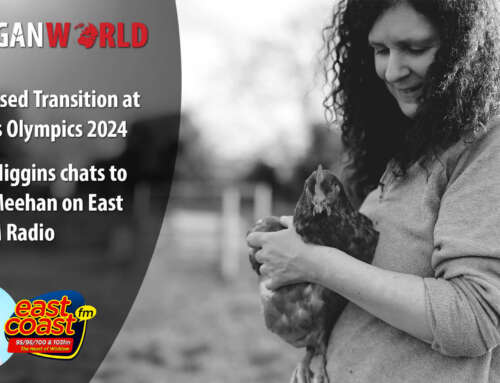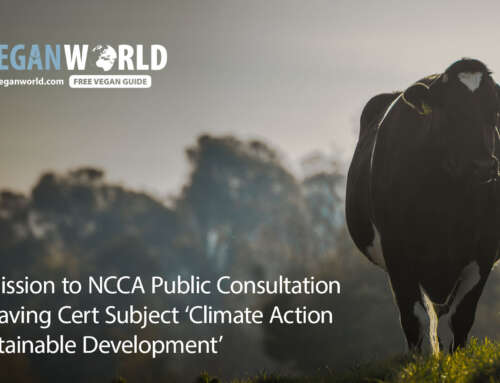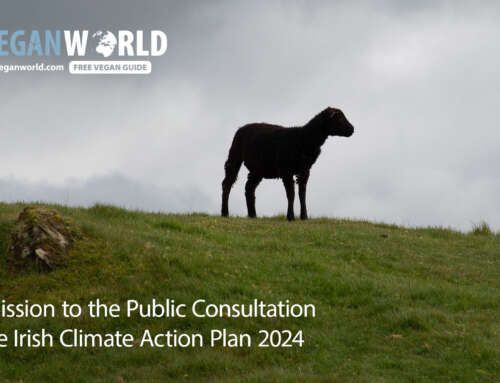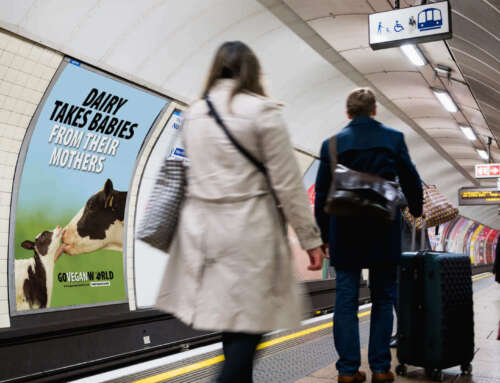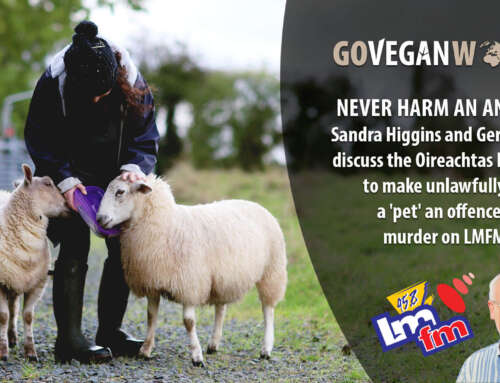The New Year is a time when people think about behavioural change. This can be an appropriate time to begin living vegan. But until people change how they think and feel about other animals as a result of gaining an understanding of animal sentience, animal rights and animal equality, the behavioural changes involved in veganism have a poor chance of becoming a lifelong way of living. It is precisely these cognitive and affective aspects of the psychology of behavioural change, the prerequisites to being vegan, that are addressed in the Go Vegan World ads.
Veganism is proving itself to be anything but the fad it was accused of being. It is based on established fact about animal sentience and increasingly seen as a rational, logical way for humans to live. More people go vegan every year and find it easy to do so. The market is changing as it adapts to the demand for plant based, vegan friendly foods. The growth in plant based replacements for milk, cheese, and other dairy products, along with replacements for flesh, fish and eggs is phenomenal. Similarly, the expanding production of vegan friendly clothing, footwear, cosmetics, personal care, and cleaning products bears testament to the fact that veganism is not simply a diet, but a way of living that avoids all animal use.
The industries that profit from animal use continue to fight back, attempting to place fear and doubt in the minds of the public. But veganism has both moral right and science on its side.
There are many potential benefits of veganism to humans*, not least that we generally feel better when we behave in ways that align with the values we hold which include not harming defenceless others. Other advantages to being vegan include the health benefits of a well-planned wholefoods plant diet, the vast reduction in both GHG emissions and other deleterious effects on the environment, a healthier economy based on more efficient use of resources, and potentially better working conditions for people involved in the production of food. But these benefits are not the reason for veganism. The reason for veganism is simply that we owe other animals the same fundamental rights we believe to be essential for ourselves: the right not to be bred for someone else to use, the right not to be owned, the right to live free from harm, and the right to life.
It is up to that cohort of the population that thinks critically and takes justice seriously, to lead the way into a new era that not only eschews animal use for the potential benefits for humans, but does so regardless of the inconvenience of changing how we live because it is the least we owe other animals. However promising the consumer demand for animal free alternatives is, it does not constitute veganism. Being vegan is not simply a matter of exercising personal choice. It is not our personal choice at all when our actions have consequences for the lives of others who feel as we do, even though they are members of a different species.
Neither can veganism be reduced to a temporary trial to see if it suits us, as if it were a new coat and could be tried on and then discarded at the first signs of inconvenience. Behavioural change cannot occur in a motivational vacuum. Veganism is a way of living that is motivated by respect for the rights of others. It involves the complete and rapid abolition of all human use of other animals in recognition of the facts that other animals share our capacity for physical and psychological feeling and they value their lives. Veganism is about respecting their fundamental rights not to be owned, used, harmed or killed. Once this core concept is accepted, veganism can be seen not as personal choice or a consumer trend but as a radical revision in how we think and feel about other lives, regardless of species. Veganism breaks down the species barrier and pertains to the rights of others.
Without this understanding of how veganism is rooted in the philosophy of animal rights, attempts at behavioural change are highly likely to flounder and discussion of veganism will be forever rooted in the mundane discussion of how to replace animal use with vegan friendly alternatives. That is why we refer people who enquire about veganism to our website and our free vegan guide, so that they have access to the information that is crucial to staying vegan, information that is our right to know as well as our responsibility to act on. That is not to say that people who are thinking of going vegan or have just gone vegan are not more than welcome to ask for advice on how to be vegan. But how to be vegan is far easier when we understand why we need to be vegan in the first place.
*Analysis and Valuation of the Health and Climate Change Cobenefits of global dietary change (2016). Marco Springmann, H. Charles J. Godfray, Mike Rayner, Peter Scarborough. Proceedings of the National Academy of Sciences Mar 2016, 201523119; DOI: 10.1073/pnas.1523119113. https://www.pnas.org/content/early/2016/03/16/1523119113 (Accessed 30th December 2018)

